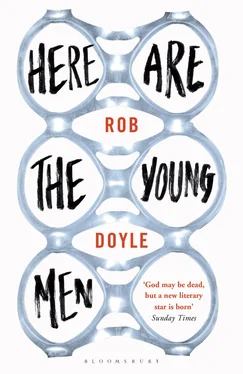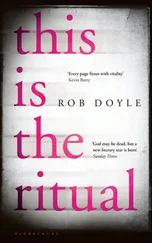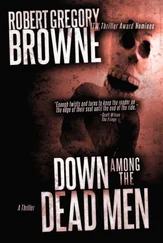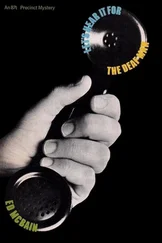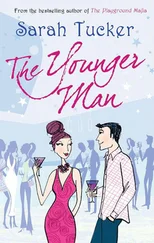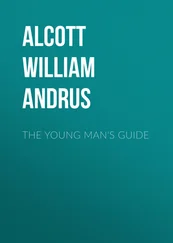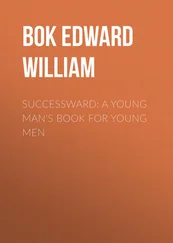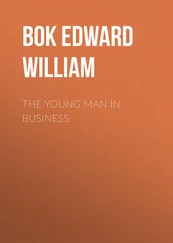Nothing happened. Time flowed on, the great lazy river. This, too, was fine with Rez, who, medication notwithstanding, remained convinced that the causes of his despair were fundamental and insurmountable. He kept this conviction to himself.
‘You’re not goin to do it again,’ his mother said.
They were sitting at the kitchen table. A bowl of barely touched cream-of-vegetable soup steamed its heat away between Rez’s elbows. Rez didn’t know if he was being asked a question or given an order.
She repeated, ‘You’re not goin to try it again.’
Rez decided it was a question. ‘No,’ he answered; even such a succinct response cost him tremendous effort. He wanted to be extricated from this conversation, planted back down in front of the Enlightenment Box, left alone to bask in its stupid radiance.
His mother was silent, looking probingly at him. He noted that there were lines around her eyes. Crow’s feet — he recalled that that was the name for them: the results of age and decay and therefore not Rez’s fault. She was in her pale-green dressing gown, makeup washed off. She seemed withered with anguish, helpless and perplexed. That was how she seemed. Rez was not taken in.
Rez thought, No doubt she thinks she’s worried about me.
Rez thought, No doubt she believes that she really cares about me.
Rez knew better. He knew she was merely playing the part of someone who loved another person. It was a decent performance, he conceded, probably enough to move someone who bought into all that shit, someone more naive than him. It didn’t touch Rez. Love was not something that existed any more. Love was the dodo or the velociraptor or the Mayan civilization.
His mother was crying now, sobbing and shaking her head, not knowing what to say. A fluttering something — pity, anguish — arose from inside Rez and floated for a moment in the space between them. It was faint, tremulous and delicate, and lasted only for a moment; then Rez snuffed out the sentiment and denied it had ever been there.
With the flicker of feeling eliminated, the null state resumed. Rez was stable again.
It was his pride that had rebelled: if his feelings weren’t his own, Rez didn’t want them. This left him very little indeed. It left him nothing but pain. Rez had once seen a piece of anarchist street art: a stark, scratchy drawing of a morose little girl against a blackened, polluted cityscape. The girl had looked into Rez’s eyes, her predicament given eloquence in a question scrawled at the bottom of the picture: ‘If I Cleaned Away All the Filth, Would There Be Anything Left?’
Rez could relate.
He repeated to his mother that he wouldn’t do it again. Then he planted himself in front of the telly and thought about nothing.
I called around to Kearney’s at eleven o’clock that Thursday morning, as he had instructed. It was yet another moody, overcast day, the last of July. It felt like the sun hadn’t been out in months. Jen had started trying to call me again, since the party at Grace’s, but there was no way I would so much as talk to her now. It was wrecked forever. Cocker had called me as well but I ignored him too. I decided I had no real friends. I might just save up for a while and go away, travel or live abroad or something, maybe drink myself to death in Mexico, like some French novel that Rez would read — I would cut this whole crowd out of my life. But first I wanted to see if this shit that Kearney said was true. Kearney was the worst of the lot, but at least he wasn’t a hypocrite.
When I reached his house, Kearney opened the door before I rang and met me with an eager grin.
‘Ready to go?’ he said with a clap of the hands, like we were setting off on a camping trip.
All the way into town, Kearney was in high spirits. He chattered away about games, porno, telly, drugs and drug dealers we both knew. I considered that maybe it was the excitement of what we were about to do that had him so worked up, and I grew uneasy. Over the past couple of days, I had more or less convinced myself that this was all just one of Kearney’s fantasies, entertaining but unreal, and I was going along with it as a kind of joke. Now, I wasn’t so sure.
We got off the bus and walked across O’Connell Bridge to the north side of the river, turning on to the Liffey walkway and heading towards Liberty Hall. This was the part of town where junkies usually congregated the most. And sure enough, here they were. Scagged out of it in broad daylight, in dirty shell suits and baseball caps, the junkies clustered and whined. They smoked cigarettes, snarled and hissed amongst themselves, insulted passers-by who didn’t give them money. The women were doglike, ravaged things, teeth all crooked or not there at all. The men were nicotine-coloured skeletons with sunken eyes, dried up and lustreless. Maybe Kearney was right: everyone would be secretly delighted if the junkies, winos and knackers were wiped out.
‘These are no good,’ said Kearney, gesturing towards the clustered junkies. ‘They’re all together, we’d only get noticed. We have to find one that’s on its own.’
We smoked cigarettes as we walked on, getting off the board-walk and crossing the street, heading down a foul-smelling laneway leading through to Abbey Street. There were a few winos in pairs but no junkies. We came to Abbey Street, sidetracked up O’Connell Street and turned in again, on to Talbot Street. A pair of gypsy types played a flute and fiddle by the James Joyce statue, with tourists and the idle clustered around to watch.
‘I’d kill every busker in Dublin as well if I had the chance,’ muttered Kearney as we passed.
We turned down a quieter street, more rundown and away from the mid-week shoppers. A group of maybe twenty chattering Spanish teenagers approached. They passed us by and the street was all but empty. Graffitied shutters lined one side, bracketed by shady passages and doorways. On the other side a high metal fence closed off an area of overgrown wasteland, with the rubble of a collapsed wall half hidden among the weeds and grass.
Up ahead, staggering along towards us, was the wiry, scruffy figure of what I immediately recognized to be a junkie, on his own. I could feel the excitement coming off Kearney, whose pace quickened as he said, ‘Here we go. This is our man.’
The junkie slumped against the fence several times as we approached. He didn’t look up till we were standing right in front of him. For a moment I thought it was the junkie who had insulted us back on the night of the Primal Scream gig. But it was just some other anonymous smackhead.
‘Hello there,’ said Kearney.
The junkie gazed at us with smacked-out indifference. He mumbled something and tried to walk on. Kearney put up his hand and stopped him.
‘Hang on a minute,’ he said.
The junkie looked up again, managing a frown, wondering what the hell we wanted of him. He looked youngish, in his twenties or thirties, it was hard to tell. His face had the yellow sheen they always had, his colourless hair and sallow skin merging into one coating of greasy lifelessness.
‘Wha?’ he said.
‘Wha?’ Kearney aped, as if he couldn’t disguise his loathing, or wasn’t bothered to.
I stood slightly behind Kearney, to his side. He was staring at the junkie in what looked like concentration, not saying anything.
I looked around. An old man was crossing the road further down, and behind him was a mother with an old-fashioned shopping trolley, cursing at her young daughter in a heavy inner-city accent. The sight of the people reassured me: Kearney had no plan — unless he was willing to murder someone in broad daylight and spend the next forty years in prison, there was no way he was going to kill this junkie, who was now whining at us.
Читать дальше
